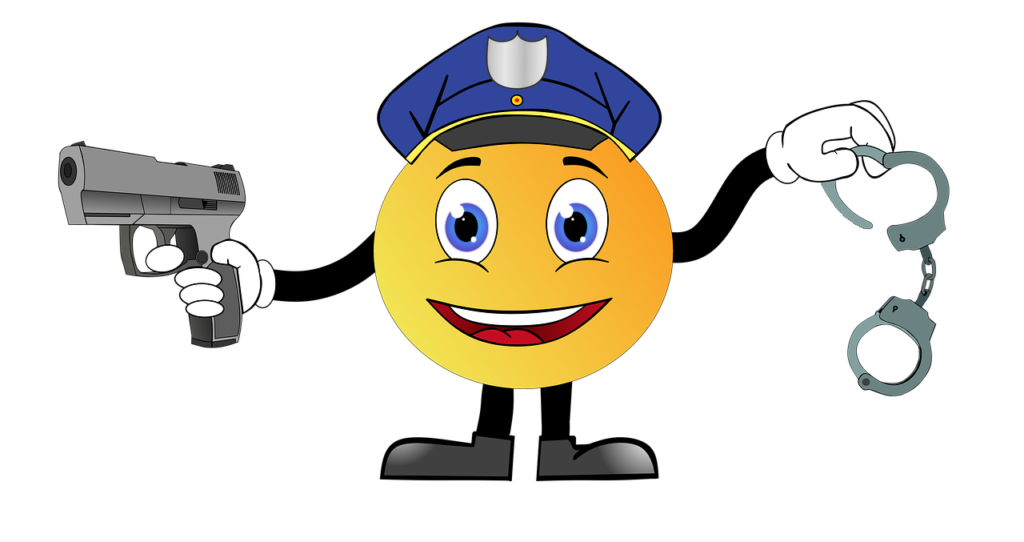INTRODUCTION
Bias crimes are crimes that influence hate or bias towards specific types of people. They can take many different forms, including verbal attacks, vandalism, and physical assaults. It can be carried on solely or in groups and can have a devastating effect on the victims and their families.
Perhaps Bias motivated crimes are often termed as Hate crimes. It is illegal under both Canadian and American law. In Canada, they are specifically prohibited by sections 318 and 319 of the Criminal Code, which express that anyone who engages in a hate crime is liable to be behind the bar for a term not exceeding five years. In the U.S.A hate offence are also prohibited by federal law, including sections 203 and 205 of the US Code.
DEFINITION OF BIAS-MOTIVATED CRIME
There is no single definition of a hate crime, and it can be difficult to determine whether a particular incident qualifies as a hate crime. Generally, a bias-motivated crime is an activity that is triggered by hatred or bias against a particular group of people and is intended to intimidate, harass, or cause physical harm to the target.
There is no one answer to the question of what constitutes a bias-motivated crime. The Federal Bureau of Investigation (FBI) defines a hate crime as “a criminal act that is motivated by bias against a particular group.” For a hate crime to be prosecuted as such, the victim must identify the perpetrator’s bias as being against the targeted group.
Several different statutory provisions can be used to prosecute hate crimes. The most used provision is 18 U.S.C. § 249, which provides criminal penalties for any conduct that targets someone depending upon their race, colour, religion, national origin, sexual orientation, or gender identity.
REASON FOR HATE CRIME
There are many reasons why someone might commit a hate crime. Some people are judgemental about a certain number of people depending on how they may walk, behave, talk, and so on. Judgemental people always have an urge to control the behaviour of others, even someone’s sexual orientation can be their concert of discussion. Others may perpetrate a hate crime because they are feeling angry or frustrated and want to lash out at someone they perceive as different from them. Others may hate a certain individual because of something that they have done. Still, others may hate a certain place or thing because of how it makes them feel or may believe that they are defending their community or country by attacking people they see as a threat.
Whatever the reason, hate crimes are always unacceptable. They not only target innocent people but also erode the fabric of our society by fostering fear and mistrust. We must stand united against hate in all its forms.
LAWS TO PROTECT HATE CRIME
Several laws can be used to protect individuals from hate crimes. These laws can include laws that prohibit hate crimes based on race, religion, disability, and sexual orientation. In addition, many states have laws that prohibit bias-motivated crimes against law enforcement officers and members of the military. Laws play an important role in the protection of bias-motivated crimes as they supervise and keep track that everyone should be treated equally and without any discrimination. Hate crimes can have a devastating effect on the victim and their family, and can also cause fear and division within a community.
In some cases, hate crimes may be covered under general laws against discrimination or violence. In others, there may be specific laws that target hate crimes. Laws to protect hate crimes are important because they send a strong message that such behavior is not acceptable. They can also help to deter people from committing hate crimes in the first place. A protected environment needs to be made so that the sufferer of hate crime can easily be without any fear or hesitation asked for help, or know someone who has, it is important to report it to the police so that they can investigate and, if necessary, prosecute the offenders.
CONCLUSION
In the U.S.A., hate crimes are punishable by law. The specific laws vary from state to state, but all states have some form of hate crime legislation. Bias-motivated crimes are often seen as more serious than other types of crimes because they choose a specific number of persons or groups of people based on their identity. This can have a profound impact on the victim and the community. Hate crimes can make people feel unsafe and unwelcome in their communities.
There has been a recent push to strengthen hate crime laws in the wake of several high-profile hate crimes, including the mass shooting at a black church in Charleston, South Carolina. In some states, lawmakers have proposed expanding the meaning of bias-motivated crimes means attacks to targeted genders, family lines, or sexual preferences. Several laws prohibit hate crimes, both state and federal. These laws protect individuals from being targeted based on their family line, background, identity, origin, religion, gender, or sexual preference. Some states, such as California, have laws that specifically address hate crimes. These laws typically include harsher penalties for offenders, including longer prison sentences and harsher penalties for aggravated crimes. At the federal level, hate crimes are classified as federal crimes. This means that the federal government has a responsibility to investigate and prosecute these crimes. To successfully prosecute a hate crime, prosecutors must be able to show that the offender acted intending to cause harm or discrimination and strict action needs to be taken.
Author’s Name: Sumona Saha (Kazi Nazrul University)


